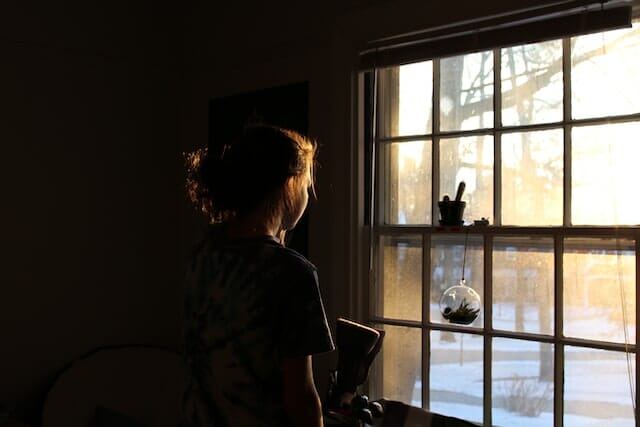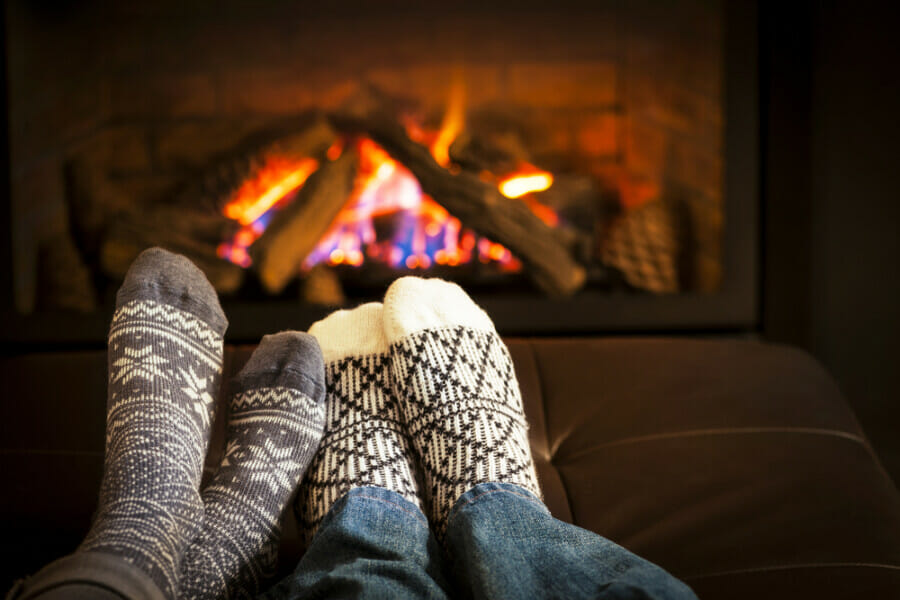Being Inside Your Home All Winter Can Make You Sick: Here’s What We Can Do About It
It is widely known that people are more likely to get sick during the winter months. The drop in temperature makes it harder for your body to fend off germs, increasing the chances of catching illnesses like the common cold, flu, and even COVID-19.
However, staying indoors throughout the winter season without proper cold-weather protection isn’t the only way you can get sick. Spending prolonged periods inside can create conditions that contribute to various aches and ailments.
Here is how staying indoors during winter can lead to illness and some ways to maintain good health until spring.
Can Winter Make You Sick?
If you believed that staying indoors from December to March was the best way to avoid getting sick in the winter, you might be surprised. Unfortunately, you can still catch a cold even while enjoying the warmth of a fireplace.
Burning wood in a fireplace releases fine particulate matter that can be harmful to your lungs. Inhaling smoke can trigger asthma attacks, bronchitis, and worsen heart and lung conditions in older individuals. Surprisingly, studies have shown that 70% of the smoke released from the chimney re-enters your home.
Moreover, living in a cold environment poses health risks too. Recent studies have revealed that a 9°F drop in temperature in your nasal passages can kill off 50% of the beneficial bacteria that help fight viruses.
Dry indoor conditions can cause discomfort such as a sore throat, sinus pressure, headaches, and nosebleeds. When there is low moisture in your sinuses, it can lead to inflammation in the nose, throat, and mouth.
During winter, pests seek shelter indoors to escape the cold. Unfortunately, rodents can carry diseases that can make you sick, especially if your home has cracks and crevices.
Being indoors all winter can also affect your mental health, with around 10 million Americans experiencing seasonal affective disorder (SAD) characterized by feelings of sadness, fatigue, and changes in weight during the shorter days of winter.

5 Ways To Stay Healthy Indoors This Winter
It is essential to protect your health during the winter season. Here are some useful tips to avoid falling ill while indoors.
1. Dress In Layers
Wearing multiple layers of clothing helps maintain your body temperature and supports your immune system.
Opt for long-sleeved shirts, sweaters, long pants, and socks to keep your body at a comfortable temperature for better health.
2. Go For A Walk
Don’t confine yourself indoors throughout winter. Layer up and take a walk outside to combat feelings of depression and anxiety.
Physical activity like brisk walking can boost your mood by stimulating the hypothalamic-pituitary-adrenal (HPA) axis.
Research shows that spending 2.5 hours outdoors daily can provide essential vitamin D and lower the risk of long-term depression.
3. Seal Out Air Drafts
Prevent cold air from entering your home by sealing windows and doors. Weatherstripping enhances your home’s energy efficiency, reducing the workload on your HVAC system to maintain a consistent temperature.
Sealing cracks also deters rodents and insects from entering your living space, reducing the risk of disease transmission.
4. Practice Good Hygiene
Flu season typically peaks between December and February, with millions of cases recorded by the U.S. Centers for Disease Control and Prevention (CDC) annually.
To stay protected this winter, practice good hygiene by regularly washing your hands, disinfecting surfaces, and considering wearing a mask to prevent the spread of germs.
5. Eat Well
It’s easy to indulge in rich holiday foods during winter gatherings. However, studies show that people tend to gain weight during winter, which can have long-term health implications.
Instead of overindulging, focus on maintaining a balanced diet with plenty of seasonal fruits and vegetables to sustain your health.

Avoid Getting Sick This Winter
It is possible to make it through the entire winter without falling ill. By prioritizing your health and creating a conducive environment for your body, you can better protect yourself against viruses and germs.














